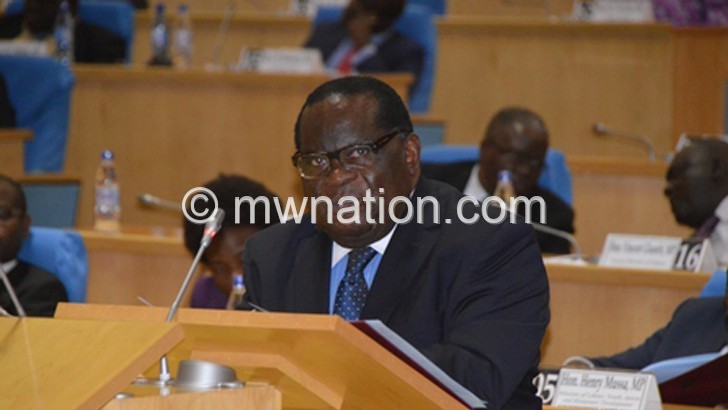IMF says 2018/19 budget Fair on projections
The International Monetary Fund (IMF) has rated the realism of the 2018/19 National Budget fairly high for its continuity of programmes and modest revenue assumptions.
In a written response to a questionnaire on Saturday in reaction to the fiscal plan presented by Minister of Finance, Economic Planning and Development Goodall Gondwe in Lilongwe on Friday, IMF resident representative Jack Ree observed that while the budget promises wage increases to civil servants, the increase could have been much higher in the face of the 2019 Tripartite Elections as is the case in many regional peer countries facing elections.

He said the assumption to increase domestic revenue by about 10 percent holds, adding it is in line with inflation, currently hovering around nine percent.
“Normally, domestic revenue can be expected to increase by inflation plus GDP [gross domestic product] growth rate if there is no change in the tax system.
“The budget also introduces some new programmes, for example, catalysing youth
employment, but it continues reforms on old programmes that proved not to work, including various politically-motivated subsidies.
Ree said it is a “controlled” budget, as the minister puts it, particularly given the immense pressure for politically-driven spending in this critical election year.
He, however, urged fiscal authorities, given the population dynamics in this country, to think about what the country can do for the future of the young and growing population, saying that will define the country’s destiny.
Gondwe tabled a K1.5 trillion fiscal plan, which is 13 percent higher than the K1.1 trillion 2017/18 revised budget, representing 22.8 percent of the GDP, which he said is poised to spur economic growth and address concerns on the rising cost of living among majority of Malawians.
Revenue, on the other hand is projected at K1.2 trillion, representing 23.6 percent of the GDP, of which, K1.05 trillion will be generated domestically, while the remaining K209 billion, representing 3.9 percent of the GDP, is expected to come from grants.
Recurrent expenditure is pegged at K1.1 trillion with K391.7 billion being development expenditure and it is expected that K940 billion will be collected through tax while K112.2 billion will be generated through non-tax revenue.
“The underpinning of this budget is a focus on robust economic growth as the main goal of economic management alongside the maintenance of macroeconomic stability for robust, inclusive and sustainable growth,” said Gondwe.
He said the completion of the three-year IMF Extended Credit Facility (ECF) programme and the approval of a new programme last month is an indication that economic management has attained the desired goal.
Malawi Confederation of Chambers of Commerce and Industry (MCCCI) chief executive officer Chancellor Kaferapanjira observed that everything points to collection of more money and little on how to generate the funds which leaves the private sector totally ignored in the budget.
He decried the lack of mention on solutions to energy crisis, adding that businesses are feeling the pinch of prolonged power outages. n





